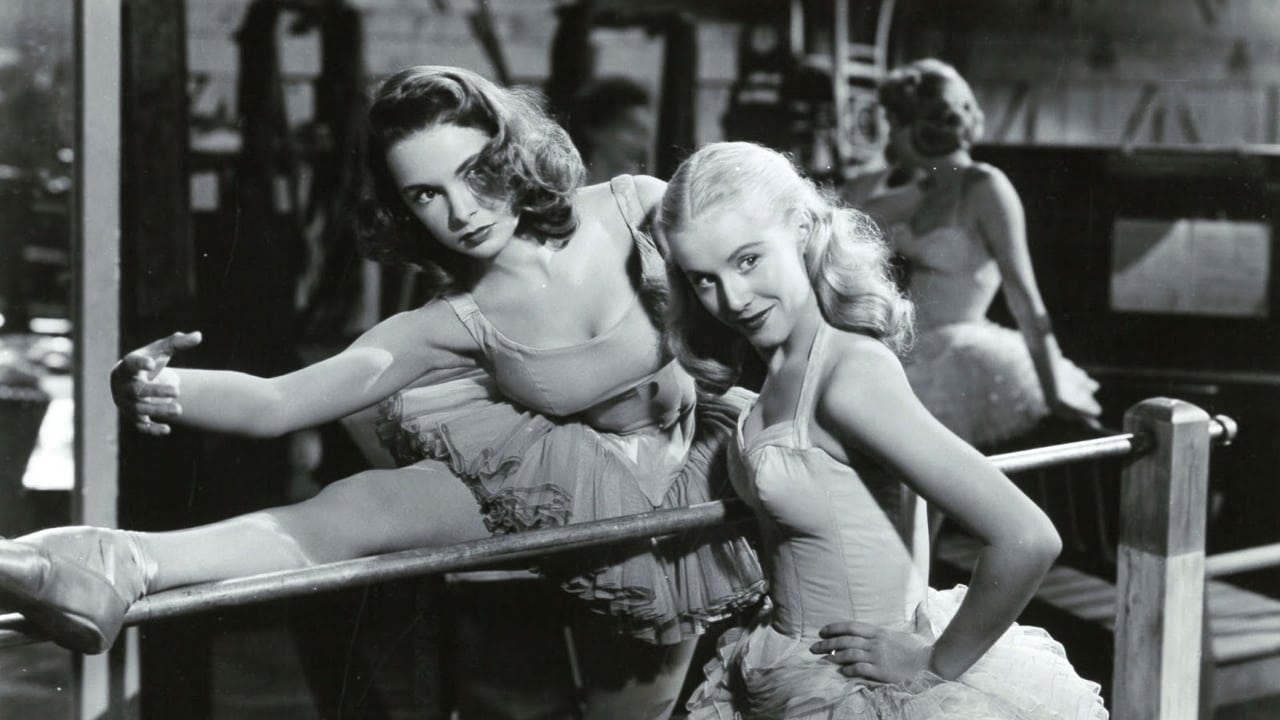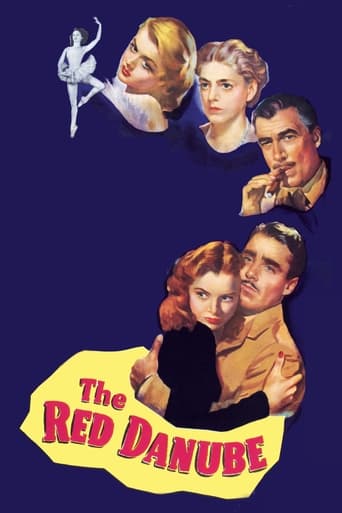Helloturia
I have absolutely never seen anything like this movie before. You have to see this movie.
Gary
The movie's not perfect, but it sticks the landing of its message. It was engaging - thrilling at times - and I personally thought it was a great time.
Darin
One of the film's great tricks is that, for a time, you think it will go down a rabbit hole of unrealistic glorification.
IzzyTree
I truly enjoyed this film. The themes of individual responsibility in an evil world, and the problem of faith in God, are handled sensitively and well. Although it is unclear at the beginning, the main characters are the Colonel played by Walter Pidgeon and the Reverend Mother played by Ethel Barrymore. The romance between Peter Lawford's adjutant and Janet Leigh's sylph-like Russian refugee ballerina is, in a sense, just an excuse plot to build the movie around, although that storyline is satisfying as well, mainly due to these two talented actors. Also noteworthy is Angela Lansbury cast against type (at least, compared to her debut in Gaslight) as a highly sympathetic, yet somewhat salty woman officer.I found others' comments on the relationship to McCarthyism and/or anti-Communism in general to be interesting. I do believe this movie showed the evils of the Soviet system, which to me, is fine. I have no idea if it fed McCarthyism, since I wasn't alive during that period. However, to me, it seems to be more about anti-totalitarianism of all stripes, rather than merely anti-Communism. In particular, the scene of the refugees in boxcars seems to be a direct reference to the Holocaust. That The Red Danube was nominated for best art direction speaks, as well, to the technical beauty of this black & white film. This film reminded me of The Third Man, in its location, art direction, and storyline. (Orson Welles always said that "Black & white is the actor's friend" -- how true, in both these movies!) Although this film is inferior to The Third Man overall, in terms of its acting, atmosphere, and skill of the director, it is still worthy of viewing. Whereas The Third Man focuses on the moral dilemma of dealing with the evil in one individual (in a corrupt society), this film deals more generally with the morality of living in a corrupt society. In other words, The Third Man asks: "Why do men turn evil in an evil society?" (which, when you think about it, may not be such a profound question; although the further question of "What can be done about it?" is also explored), whereas The Red Danube asks: "How can men stay good in an evil society?" (which is really a much more useful question). So, although there's no denying that The Third Man is the better movie overall, I would highly recommend The Red Danube due to its high production values, the collection of wonderful actors in its ensemble cast, and a very engaging, philosophical script.
bkoganbing
Russian colonel Louis Calhern is looking for prima ballerina Janet Leigh to take her back to the Soviet Union in post World War II Vienna in 1946. His quest is the heart of The Red Danube. The Red Danube came out in 1949 and is set at the time when people thought it possible to keep the wartime Allies on the same page. That was not to be due to the differences in the two political systems that combined to defeat Hitler.Walter Pidgeon is recently transferred to Vienna and gets an order to find her and turn her over to the Russians. He doesn't count on three things, his aide Peter Lawford falling for Janet, the formidable presence of Mother Superior Ethel Barrymore who is sheltering Leigh, and his own growing conscience about what he sees around him.People would rather die than return to the worker's paradise that Communism has created. I mean literally, both here in the film and in real life back in the day. It's easy to dismiss The Red Danube as a Cold War inspired film. But the situations are way too real.Best performance in the film is Ethel Barrymore, followed closely by Pidgeon as the British Colonel with a conscience. Pidgeon is a nonbeliever and his debates with Barrymore about religion are the best thing in the film. Part of the film has Pidgeon getting Barrymore on a military plane to see the Pope in Rome during a conference concerning refugees. Now mind you this is Pius XII we are talking about who before and as Pope never quite saw the danger Hitler was to the church that Stalin was.But I'm willing to bet that seeing Ethel Barrymore delineate the character of the Mother Superior this was a woman who walked the Christian walk as well. I'm even willing to bet she probably sheltered a few Jews during the holocaust as well.
margaretwestlake-1
I liked this movie very much; it resonated clearly. I grew up during the 2nd WW, and the aftermath was often a mystery; this relates to that time vis-a-vis Russia and her ex-patriots. This is not a formula movie; we care about the main characters and it really reaches to the heart. The points the script made about our choices in life were well made, and the reference to religion was fair. I'm going to use the metaphoric model of the painter, paint, ladder and ceiling in my own work. The actors were wonderful, and the camera work was exceptional at getting to the feelings that shine through the face. The lighting was part of that effect. I knew something was up when I saw the close-ups with artistic lighting, but I didn't know how strongly they would tie to later scenes and evoke emotions. This added to our caring about the sweet innocent Janet Leigh, and the young, idealistic Peter Lawford. I didn't agree with all the philosophy, but it certainly was mostly a tribute to listening to the conscience.
kjbeirne
A solid film, which it is strange to see people calling controversial, since one would think that there would be little doubt any more about the nature of Soviet Communism, and the horrors perpetrated by Stalin. The cruelty of the allies turning over innocent expatriates to the Gulag and worse is rather convincingly portrayed. The moral dilemmas are decently examined, there are outbreaks of actual Christian faith and, of course there is a love story, because western audiences could hardly handle a movie without one. Barrymore is pungent, Leigh is beautiful, Lawford is sentimental, and Pigeon is as stiff as you could want a Brit to be. And Angela Lansbury makes a charming supportive appearance. Not a great movie, but a reasonably honest one which has nothing to do with McCarthyism and is definitely worth a viewing.

